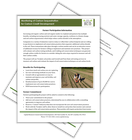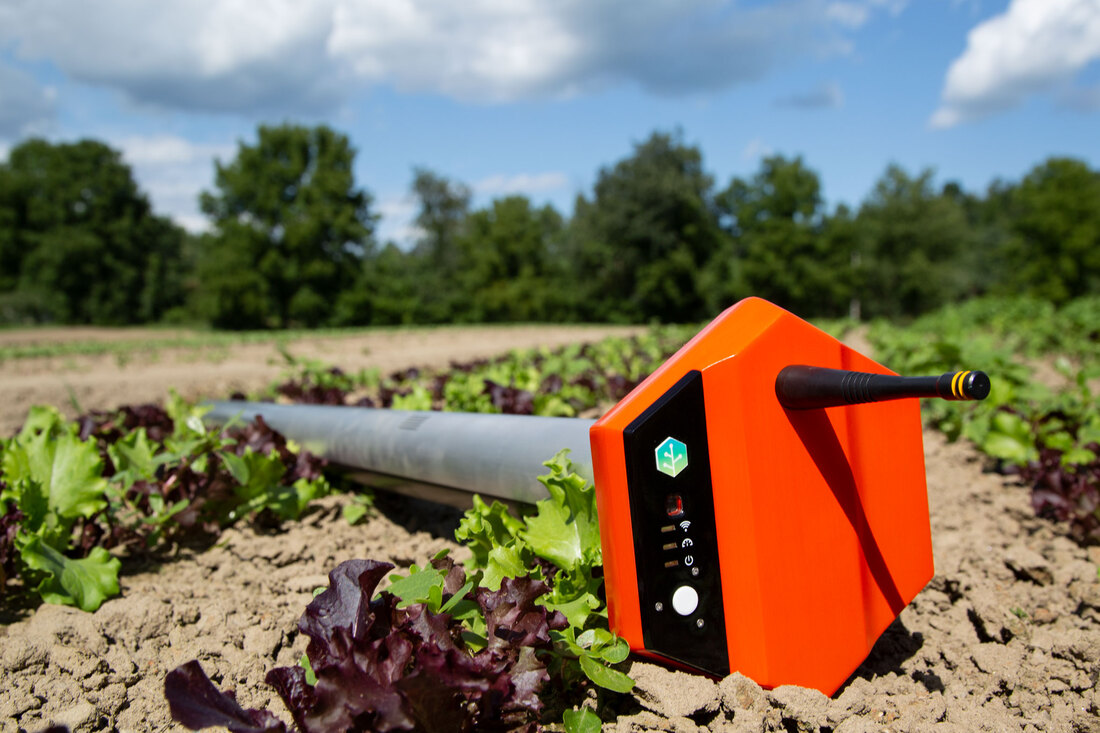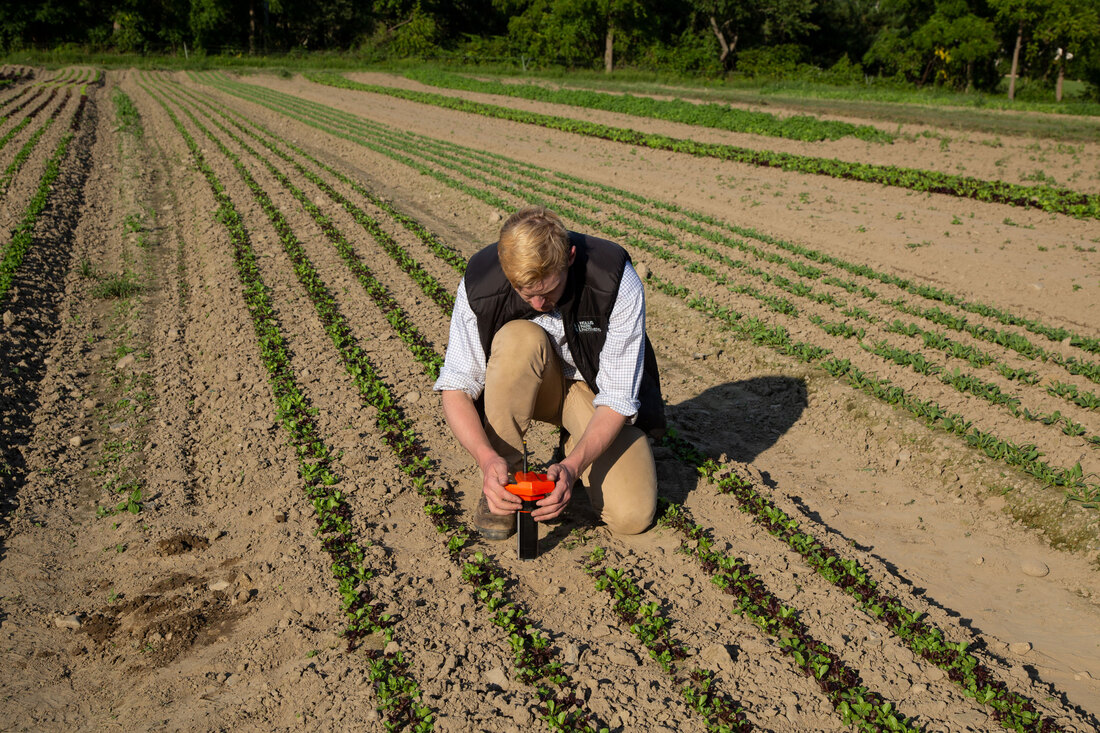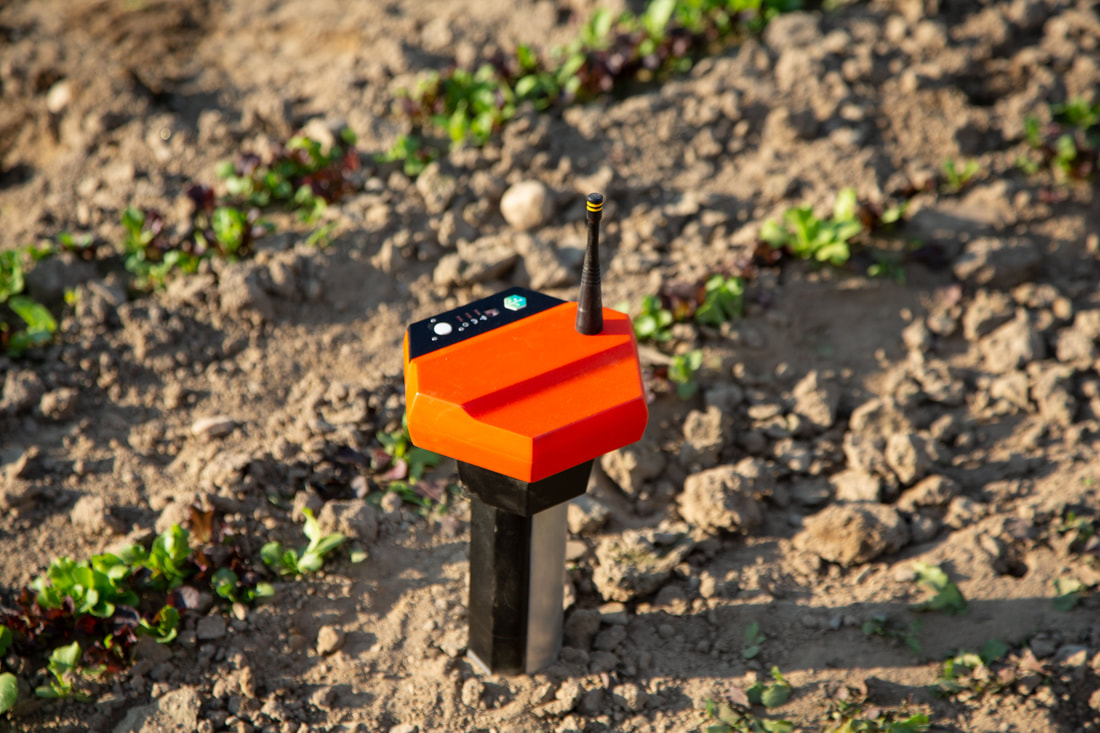Carbon Monitoring
In 2022, Capital RC&D was awarded funds from the Pennsylvania NRCS Conservation Innovation Grants (CIG) Program to conduct the project, Monitoring of Carbon Sequestration for Carbon Credit Development, which then launched in September 2022. This three year project will use Teralytic soil probes and Cornell and Penn State soil testing services to measure soil carbon and evaluate the impact of soil conservation techniques on soil carbon levels.
Increasing soil organic carbon and soil organic matter in cropland and pastures has multiple benefits, including increasing nutrient and water storage capacity, resilience to climate change, and soil carbon sequestration which helps reduce carbon dioxide in the atmosphere.
Companies in a variety of industries want to reduce or offset their carbon footprint and are willing to pay farmers to implement soil conservation practices that sequester additional carbon dioxide in the soil. These transactions take place through a carbon market and can be an attractive source of additional revenue for farmers willing to implement and maintain new practices. This project will evaluate soil carbon testing methods, and if adding soil conservation techniques can generate enough carbon credits for farmers to consider taking the extra steps required to measure and sell their carbon credits.
Increasing soil organic carbon and soil organic matter in cropland and pastures has multiple benefits, including increasing nutrient and water storage capacity, resilience to climate change, and soil carbon sequestration which helps reduce carbon dioxide in the atmosphere.
Companies in a variety of industries want to reduce or offset their carbon footprint and are willing to pay farmers to implement soil conservation practices that sequester additional carbon dioxide in the soil. These transactions take place through a carbon market and can be an attractive source of additional revenue for farmers willing to implement and maintain new practices. This project will evaluate soil carbon testing methods, and if adding soil conservation techniques can generate enough carbon credits for farmers to consider taking the extra steps required to measure and sell their carbon credits.
|
Test sites will be located on farms in south central Pennsylvania. Farmers interested in participating can learn more by reviewing the farmer participation handout.
|
Photos courtesy of Teralytic, manufacturer of the wireless soil probes utilized in this project.
Carbon Monitoring Project Partners
Capital RC&D
Climate Smart Environmental Consulting, LLC
EQT Corporation
Team Ag, Inc.
Teralytic
USDA-Natural Resources Conservation Service (NRCS) in Pennsylvania
Climate Smart Environmental Consulting, LLC
EQT Corporation
Team Ag, Inc.
Teralytic
USDA-Natural Resources Conservation Service (NRCS) in Pennsylvania




